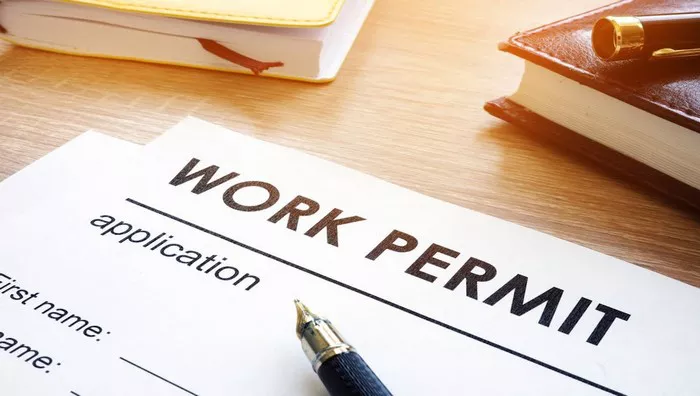In an era marked by globalization and increased mobility, individuals from around the world seek opportunities to work abroad. However, for immigrants, securing a work permit can be a complex and challenging process. Understanding the steps involved and the requirements to obtain a work permit is essential for navigating this journey successfully. In this article, we will explore the various avenues through which immigrants can obtain a work permit, providing insights into the procedures and considerations involved.
Understanding Work Permits: A Brief Overview
Before delving into the specifics of obtaining a work permit, it is crucial to understand what a work permit entails. A work permit, also known as a work visa or employment authorization document, is a legal document that allows non-citizens to work in a particular country for a specified period. The regulations governing work permits vary from one country to another, with each nation having its own set of eligibility criteria and application procedures.
1. Determine Eligibility
The first step in obtaining a work permit is to determine whether you meet the eligibility criteria set forth by the country in which you wish to work. Eligibility requirements typically include factors such as education, professional experience, language proficiency, and the availability of job opportunities in specific industries.
In many cases, obtaining a job offer from an employer in the host country is a prerequisite for securing a work permit. Employers may be required to demonstrate that they have made efforts to fill the position with a local candidate before hiring an immigrant. Additionally, certain industries or occupations may have specific requirements or quotas for hiring foreign workers.
2. Research Work Permit Options
Once you have determined your eligibility, the next step is to research the various types of work permits available in your desired destination country. Work permits can vary based on factors such as the duration of employment, the type of work being performed, and the immigrant’s qualifications.
Some countries offer specific work permits for skilled workers, students, entrepreneurs, or individuals seeking temporary employment. Others may have programs designed to attract immigrants with specific skills or expertise in high-demand industries such as healthcare, technology, or engineering.
It is essential to thoroughly research the options available to you and determine which type of work permit best suits your circumstances and career goals.
3. Prepare Required Documentation
Once you have identified the appropriate work permit option, the next step is to gather the necessary documentation to support your application. The specific documentation required will vary depending on the country and the type of work permit you are applying for. However, common documents typically include:
Passport or other valid identification
Proof of employment or job offer from a recognized employer
Educational credentials or professional certifications
Proof of financial stability or means of support during your stay
Health insurance coverage
Police clearance or background check
Visa application forms and fees
It is crucial to ensure that all documentation is accurate, up-to-date, and properly prepared according to the requirements outlined by the immigration authorities.
4. Submit Application and Attend Interviews
Once you have gathered all required documentation, you can proceed to submit your work permit application to the appropriate immigration authorities. In some cases, you may be required to attend an interview or provide additional information to support your application.
It is essential to follow the instructions provided by the immigration authorities carefully and to submit your application well in advance of your intended start date. Delays or errors in the application process can result in processing delays or even the rejection of your application.
5. Await Approval and Obtain Work Permit
After submitting your application, you will need to await a decision from the immigration authorities. Processing times can vary depending on the country and the volume of applications received. It is essential to be patient during this time and to refrain from making any travel or employment arrangements until you have received official approval.
Once your application has been approved, you will be issued a work permit allowing you to legally work in the host country for the specified duration. Be sure to review the terms and conditions of your work permit carefully, including any restrictions or limitations on employment, and comply with all requirements outlined by the immigration authorities.
6. Maintain Compliance and Renewal
After obtaining your work permit, it is essential to maintain compliance with all immigration laws and regulations throughout your stay in the host country. This includes adhering to the terms and conditions of your work permit, such as reporting any changes in employment or personal circumstances to the immigration authorities.
Depending on the duration of your employment and the policies of the host country, you may need to renew your work permit periodically to continue working legally. Be sure to familiarize yourself with the renewal process and submit your application for renewal well in advance of your permit’s expiration date to avoid any interruptions in your ability to work.
Conclusion
Securing a work permit as an immigrant can be a challenging process, but with careful planning and preparation, it is possible to navigate the path successfully. By understanding the eligibility criteria, researching available options, preparing required documentation, and following the application process diligently, immigrants can increase their chances of obtaining a work permit and pursuing their career aspirations abroad. It is essential to stay informed about changes in immigration laws and regulations and to seek guidance from immigration professionals or legal experts if needed. With determination and perseverance, immigrants can overcome barriers and seize opportunities to build a better future for themselves and their families in a new country.


